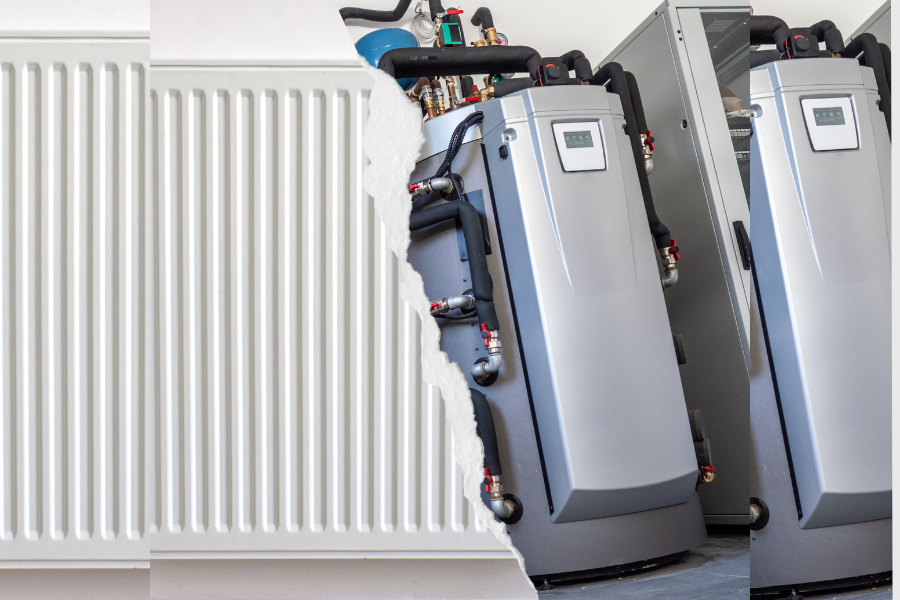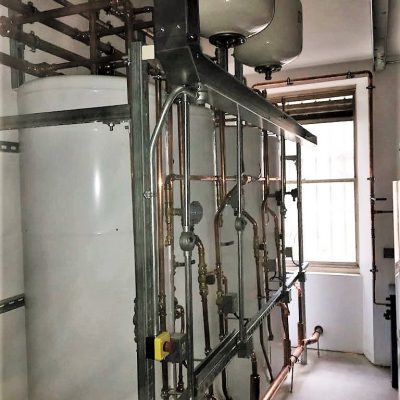What Is an LPG Boiler and How Does It Work?
An LPG boiler is an appliance used to heat water and provide central heating for a home or business. It uses Liquefied Petroleum Gas (LPG) as its fuel source and works by burning the gas to heat water which is then directed around the building via radiators or underfloor heating systems.
The main advantage of an LPG boiler is that it can be located anywhere in the home or business premises without being connected to the main gas supply. This means that an LPG boiler can still be used to provide central heating and hot water in areas where the main gas is unavailable, such as in rural locations.
An LPG boiler requires the installation of a storage tank or cylinders to store the fuel and these will need to be topped up with new supplies of LPG regularly.
LPG Boilers Being Replaced with More Energy-Efficient Models
LPG boilers are being replaced with more energy-efficient models but they are not phasing out. Gas boilers will still be available for purchase after 2025, and they will be able to connect to a gas supply. However, for new build properties, renewable heating technologies must be installed instead of gas-fired boilers.
You don’t have to replace your existing gas-fired boiler before 2025, but you may choose to do so if you want to reap the benefits of a more energy-efficient model. However, when purchasing a new boiler after 2025, please be aware that only those that can be connected to a hydrogen gas supply will be permissible. This will help to reduce emissions and promote a more sustainable energy source.
How This Could Impact Homeowners and Businesses Across The UK?
The implementation of new energy regulations could have a huge impact on homeowners and businesses across the UK. For businesses, the costs of complying with these regulations may lead to higher expenses that ultimately affect their bottom line, making it more difficult for them to remain competitive in an already challenging market.
Homeowners too may find themselves paying more for energy, as providers may be forced to pass on the costs associated with complying with the new regulations. In addition, there could be an increase in energy taxes and levies, which could further drive up costs for homeowners.
Additionally, some new regulations may require major upgrades to existing homes and businesses, such as replacing old boilers or appliances that don’t meet the new efficiency standards. These upgrades could be costly and time-consuming, further increasing the financial burden on homeowners and businesses alike.
Ultimately, these changes in energy regulations are intended to reduce our reliance on fossil fuels, but they could have far-reaching consequences that impact both homeowners and businesses. Everyone needs to understand the potential impacts of these regulations and make informed decisions accordingly.
The introduction of renewable sources of energy such as solar thermal or air-source heat pumps could also lead to higher upfront costs. However, in the long term, it may be beneficial as renewable energy sources are cheaper to run and have lower maintenance costs.
What You Can Do to Prepare for A Potential Change in Legislation?
It is to become informed about the current laws and regulations in your area. You can also sign up for newsletters or follow publications that keep you updated on changes in the law. This way, you can stay up-to-date on any changes that may take effect. You can also connect with other professionals in your industry and ask them about any new laws that may be affecting their businesses.
A local plumber or Gas Safe Engineer in Glasgow can also give you advice on how to update your home or business per the new energy regulations. They can ensure that all the necessary upgrades are done properly and safely so that you comply with the law.
It is also important to speak to your energy provider and ask them about any changes they have made or plan to make, to comply with the new regulations. If you are aware of any upcoming legislation changes, they may be able to offer you guidance on how best to prepare.
Can I Find a Qualified Technician to Install or Service My LPG Boiler?
The best way to find a qualified technician is by checking the reviews of the company you are considering, researching their qualifications and certifications, and asking any questions you may have to ensure that they are knowledgeable about the job. You should also make sure to ask for references so that you can contact past customers to gain a better understanding of the technician’s work.









